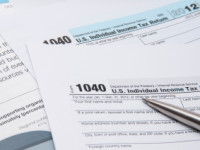When it comes to health insurance, a qualifying event is a life event that makes you eligible to purchase health insurance outside the dates of open enrollment. A qualifying event triggers a special enrollment period lasting 30-60 days, depending on the event. Read more about special enrollment periods. Qualifying Events Change in marital status (marriage/divorce/death of a spouse) Relocation to a new state or to an area of your current
2016 Open Enrollment – What You Need to Know
Open Enrollment is a set time period each year during which anyone can buy a new health insurance plan for any reason. You cannot be denied coverage during Open Enrollment. Open Enrollment for 2016 health coverage is November 1, 2015 – January 31, 2016. 2016 Open Enrollment is Here If you are uninsured, Open Enrollment is your chance to get coverage for 2016 and avoid a penalty tax. If you
Buying Health Insurance in Washington, DC
If you live in Washington DC, let Virginia Medical Plans help you choose and enroll in an individual or family health insurance plan! If you’re eligible for a subsidy to help pay for coverage, we can also help you collect your subsidy. Enrollment in DC plans is done through DC’s health insurance marketplace: https://www.dchealthlink.com. You can browse available plans without creating an account, but we recommend you create an account
COBRA vs. Individual/Family Health Insurance Plan?
Before the Affordable Care Act (ACA, aka Obamacare), leaving a job meant either getting private health insurance (which was sometimes difficult because of pre-existing conditions), going without health insurance (NOT a good option!), or paying for coverage under COBRA. COBRA — the Consolidated Omnibus Reconciliation Act — is the federal law that gives you the right to continue your employer-sponsored health insurance coverage for 18 months. The problem with COBRA,
What is the Penalty for Not Having Health Insurance in 2017?
If you went for more than 3 months without health insurance in 2016, you will be assessed a penalty when you file your 2016 income taxes. Here are the penalty amounts for not having coverage in 2015, 2016, and 2017. You can estimate your possible penalty by using the Estimator tool found at this link: https://taxpayeradvocate.irs.gov/estimator/isrp/index.htm. 2015 2016 and 2017 $325 per adult $162.50 per child Family Maximum of $975
Online Access for Medicare Beneficiaries
Nowadays, there’s not much you can’t accomplish online. Several years ago, the Social Security Administration (SSA) jumped on the bandwagon and introduced online access to earnings, benefits, etc. when you establish a “My Social Security” account. Having a “My Social Security” account just got even more convenient! What Can I Do with a “My Social Security” Account? Here is a full list of your account’s online capabilities: Track and verify
What are Key Dates for 2016 Health Insurance?
If you purchase health insurance for yourself or your family (vs. getting coverage through your employer), it is time to think about your 2016 coverage. Here are some dates to keep in mind: November 1, 2015. The start of Open Enrollment for 2016 health insurance. Open Enrollment is the time when you can apply for new health insurance coverage, or, if you already have coverage, you can pick a new
Preparing for 2016 Open Enrollment
Open Enrollment is a set time period each year during which anyone can buy a new health insurance plan for any reason. If you enroll during Open Enrollment, you cannot be denied coverage. If you are currently uninsured, this is your chance to get coverage for 2016 and avoid a penalty tax for being uninsured. If you are currently covered under an individual/family health plan (vs. having coverage through your
Health Insurance Subsidy and Your 2014 Tax Return (IRS Letter 5591)
Did you receive a subsidy to help you pay for health insurance in 2014? Have you filed your 2014 federal income tax return? If you collected a subsidy in 2014, but did not file a 2014 tax return — Form 1040 with Form 8962 — you cannot get a subsidy in 2016. The IRS communicated this in IRS Letter 5591 this summer, and you may also soon hear from your
Am I Eligible for a Health Insurance Subsidy in 2016?
Eligibility for a subsidy on your health insurance is determined based upon your household income level and the number of people in your household. The income levels are tied to the Federal Poverty Level and are adjusted each year. For 2016 coverage, here are the income limits: Subsidy Eligibility for 2016 Health Insurance Source: Federal Poverty Level Guidelines Virginia Medical Plans Can Help We can tell you if you will
- « Previous Page
- 1
- 2
- 3
- 4
- 5
- 6
- …
- 26
- Next Page »















